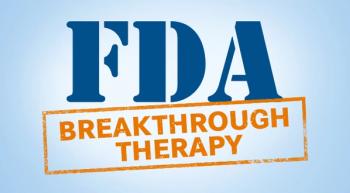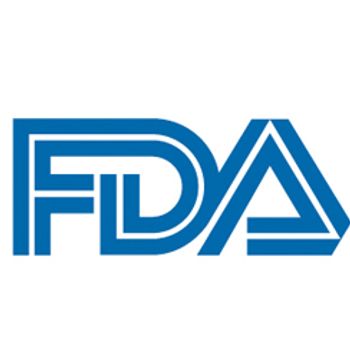
Denosumab (Xgeva), a RANK ligand inhibitor, has been approved by the FDA for the prevention of skeletal-related events (SREs) in patients with multiple myeloma.

Denosumab (Xgeva), a RANK ligand inhibitor, has been approved by the FDA for the prevention of skeletal-related events (SREs) in patients with multiple myeloma.

Some younger women with breast cancer may soon have a new first-line treatment option. Ribociclib (Kisqali), has been granted a breakthrough therapy designation by the FDA for use in combination with tamoxifen or an aromatase inhibitor (AI) as frontline treatment for pre- or perimenopausal women with hormone receptor-positive, HER2-negative advanced or metastatic breast cancer.

Seattle Genetics announced that a supplemental biologics license application for brentuximab vedotin (Adcetris) used in combination with Adriamycin, vinblastine, and dacarbazine as a frontline treatment for advanced classical Hodgkin lymphoma has been granted a priority review by the FDA.

The FDA has granted priority review to a supplemental new drug application (sNDA) for use of dabrafenib (Tafinlar) and trametinib (Mekinist) in combination as an adjuvant treatment for patients with BRAFV600E– or V600K–positive stage III melanoma following complete resection.

The FDA has granted a priority review to a new drug application (NDA) for apalutamide (ARN-509) for the treatment of patients with nonmetastatic castration-resistant prostate cancer (CRPC). Apalutamide is an oral androgen receptor inhibitor.

The FDA has granted a priority review to a supplemental new drug application (sNDA) for the use of osimertinib as a first-line treatment for patients with non-small cell lung cancer (NSCLC) whose tumors harbor EGFR mutations.

The FDA has granted a priority review to a supplemental biologics license application (sBLA) for use of this combination as a frontline treatment for intermediate- and poor-risk patients with advanced renal cell carcinoma (RCC).

This PARP inhibitor therapy is more effective than chemotherapy in extending progression-free survival and reducing risk of death from BRCA-positive breast cancer.

PARP inhibitor Rucaparib may soon be available to a wider group of patients with ovarian cancer.

Bevacizumab (Avastin), a VEGF inhibitor, has been granted a full approval by the FDA for the treatment of adult patients with glioblastoma that progressed following prior therapy, according to its manufacturer, Genentech.

Trastuzumab (Herceptin) biosimilar MYL-1401O (Ogivri; trastuzumab-dkst), which is co-developed by Mylan and Biocon, has just been approved by the FDA for HER2-positive patients with breast cancer or metastatic gastric or gastroesophageal junction adenocarcinoma, the same indications as trastuzumab.

The FDA has granted a priority review to a biologics license application (BLA) for mogamulizumab for the treatment of patients with cutaneous T-cell lymphoma (CTCL) who have received at least 1 prior systemic therapy, according to Kyowa Hakko Kirin, the manufacturer of the anti-CCR4 monoclonal antibody.

The FDA has approved sunitinib (Sutent) for use as an adjuvant therapy in patients with renal cell carcinoma (RCC) who have received nephrectomy and are high risk for recurrence.

The FDA has approved obinutuzumab (Gazyva) in combination with chemotherapy, followed by obinutuzumab alone, for the first-line treatment of patients with advanced follicular lymphoma, according to Genentech, the manufacturer of the therapy.

The FDA has approved brentuximab vedotin (Adcetris) as a treatment for patients with cutaneous T-cell lymphoma (CTCL) who have received prior systemic therapy, according to Seattle Genetics, which codevelops the antibody-drug conjugate with Takeda.

The FDA has approved intravenous (IV) rolapitant (Varubi) for use in combination with other antiemetic agents to treat delayed chemotherapy-induced nausea and vomiting (CINV) in adults, according to TESARO, the manufacturer of the agent.


The FDA approved abemaciclib (Verzenio) for use in combination with fulvestrant in women with HR+/HER2- advanced breast cancer with disease progression following endocrine therapy. The CDK4/6 inhibitor has also been approved as a monotherapy for patients with HR+/HER2- breast cancer with metastatic disease who have previously received endocrine therapy and chemotherapy.

The FDA has granted an accelerated approval to copanlisib (Aliqopa) as a treatment for patients with relapsed follicular lymphoma who have received at least 2 least prior systemic therapies.

The FDA has approved fulvestrant (Faslodex) for use in hormone receptor (HR)-positive, HER2-negative locally-advanced or metastatic breast cancer in postmenopausal women not previously treated with endocrine therapy.

Ibrutinib has been approved for the treatment of adult patients with chronic graft versus hose disease (GVHD) following the failure of 1 or more lines of systemic therapy.

The FDA has granted accelerated approval to nivolumab (Opdivo) for the treatment of adult and pediatric patients with microsatellite instability-high (MSI-H) or mismatch repair deficient (dMMR) metastatic colorectal cancer (mCRC).

The FDA has approved ipilimumab (Yervoy) for the treatment of patients aged ≥ 12 years with unresectable or metastatic melanoma.

The FDA has approved neratinib (Nerlync) for the extended adjuvant treatment of patients with early stage, HER2-positive breast cancer following postoperative trastuzumab.

The FDA accepted supplemental biologics license application (sBLA) for the use of denosumab (Xgeva) for the prevention of skeletal-related events (SREs) in patients with multiple myeloma.

The FDA has approved subcutaneous rituxumab (Rituxan Hycela) for the treatment of adults with previously untreated

Daratumumab (Darzalex) has been approved for use in combination with pomalidomide (pomalyst) and dexamethasone for patients with multiple myeloma.

The PARP inhibitor olaparib (Lynparza) was shown to reduce the risk of disease progression by 42% compared to standard chemotherapy in patients with BRCA-positive, HER2-negative breast cancer.

As presented at the 2017 ASCO Annual Meeting, adding abemaciclib to fulvestrant can reduce the risk of disease progression or death by 45% compared to fulvestrant alone in pretreated patients with HR+/HER2-negative breast cancer.

The FDA has granted approval to the second generation ALK-inhibitor, ceritinib for treatment of patients with ALK-positive, metastatic non-small cell lung cancer (NSCLC).